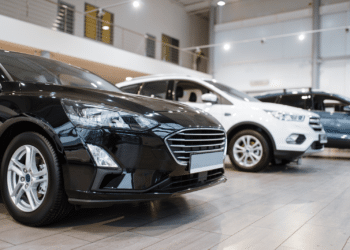Collaborate to Innovate Mobility, Expert Says
 Cross-pollination between tech companies and auto manufacturers is no longer optional, it’s a “necessary,” Michael Macauley, chief executive of Quadrant Information Services, cautioned.
Cross-pollination between tech companies and auto manufacturers is no longer optional, it’s a “necessary,” Michael Macauley, chief executive of Quadrant Information Services, cautioned.
“As cars become devices that we drive or don’t drive, and devices become more integrated with our transportation experience across modes,” the two industries need to learn to work together rather than separately, Macauley said. Quadrant provides analytics analytics solutions for property and casualty insurance companies.
“Ford, for example, is talking about putting autonomous cars in dealerships by 2021,” Macauley said. “I don’t know how feasible that is, but they are still looking for the best solution, and once they find it, if you’re Infiniti or Ford, you are not going to give up your precious gem.” Tech is what will differentiate cars of the future, so for the starters there won’t be much of open collaboration among manufacturers, or among the tech companies, “although there should be,” he explained.
BMW, for example, is aiming to make that 2021 goal more feasible, by partnering with Israeli-based startup Mobile eye, to develop fully autonomous vehicles — just one example of cross-collaboration.
Other startups, such as Boston-based Nutonomy, have also began testing fully autonomous cars on the road — but the tech is still in its early stages. “We are at Level 2 of autonomous cars, and we need to get to Level 5 for the cars to be allowed on the streets,” Macauley said.
And technology is not the only aspect that needs work: road regulation and insurance concerns still remain mostly not addressed. “When it comes to insurance, companies haven’t really priced anything, because, frankly, they don’t know what they are insuring,” he added. “We are also looking into issues like will they be insured by the manufacturer, for how much, etc.”
Even though big-name manufacturers and tech companies may resist collaboration, startups in the field of mobility seem much more open to it. Knoxville, Tenn-based Local Motors encourages collaboration across all the industry players. The startup sets a challenge, such as 3D printing a fully functional car in 12 hours, and “once the challenge is set, our community members begin attacking it. Working together or independently, all we ask is to think big. If an idea seems impossible, radical or down-right insane, we want to hear about,” according to the company website.














